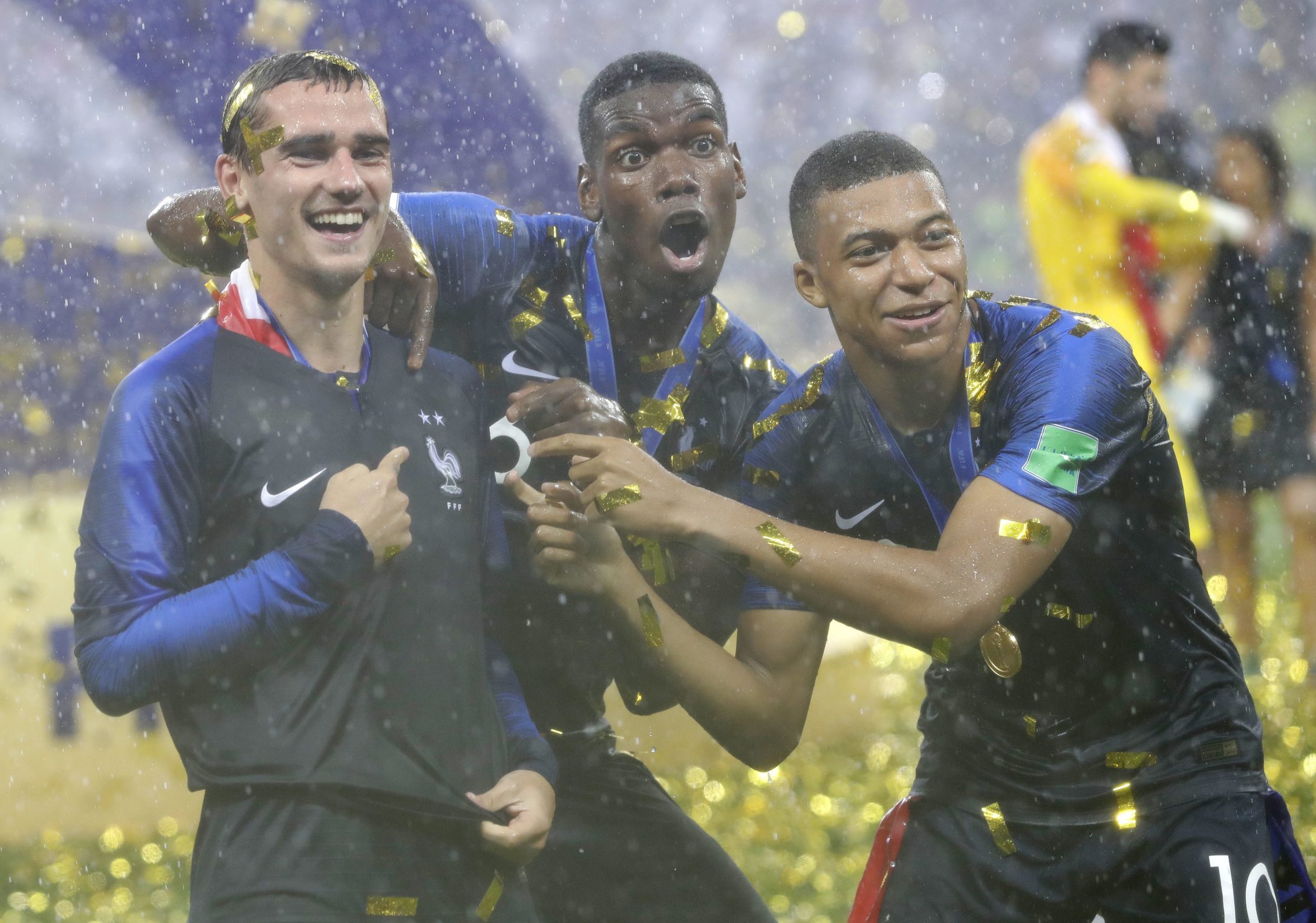And then it was Tuesday.
The great distraction was over, the final—watched by at least one billion people, if the last edition is any guide—now forty-eight hours in the past, receding quickly in the rear-view mirror. The parlous state of geopolitics was back in focus, impossible to avoid, with Donald Trump’s servile simulacrum of a summit, in Helsinki, with Vladimir Putin.
For a blessed month, the World Cup had proposed a happy narrative of competition. The rules were universal. The process was clear. The winner had legitimacy, for a single term of four years until the next tournament. Football is only a game, but the World Cup is the planet’s most popular and unifying cultural event. First held in 1930—nearer the Treaty of Versailles than Yalta—it is one of the global order’s most durable institutions.
It generates power, too: soft power, the nice kind, which can turn into material benefits through investment and tourism, and political capital for governments to employ in their international and domestic affairs. These spoils accrue to the winners, but the winners are not just the champion—in this instance France—but any nation that advanced deep in the tournament and, through sparkle and grit, won hearts and defied expectations.
That sentimental winner this year was Croatia, a country of barely four million people that fielded a team of talent and tenacity, led by brilliant midfielder Luka Modrić, who plays professionally for Real Madrid and is at the height of his art. The Croatians came into the final having eliminated Denmark, Russia, and England, an itinerary that required in all three instances a grueling thirty-minute overtime, and twice went to the stressful tie-breaker of penalty kicks, with heroic saves by goalkeeper Danijel Subašić.
All this earned Croatia majority support in the mostly Latin American crowd with whom I watched the final, at the home of Peruvian and Colombian friends in upper Manhattan. When the camera panned to the VIP box in the Luzhniki Stadium, alighting on Kolinda Grabar-Kitarović, Croatia’s president, her association with the team outweighed—if only in the moment—what we might have read about her government’s corruption scandals and right-wing policies. She sported the team’s red-and-white checkerboard jersey, in contrast to French president Emmanuel Macron, who wore a standard dark suit; she had traveled to almost all of Croatia’s matches, foregoing each time a day’s pay. These were political gestures, obviously—she is up for re-election in 2020—but that did not make her enthusiasm any less infectious or authentic.
Likewise, those of us in the minority supporting France did so with no illusions. We knew, as you may also have gathered from a million English-media thinkpieces, that France’s emotional investment in its World Cup squad, majority Black and nearly one-third Muslim, made an awkward contrast with the inequality, racism, and Islamophobia that pervade French society. The same Macron who basked in the victory, showing up in the locker room after the match and hosting a big celebration at the Elysée the next day, has made patronizing remarks about Africa and offered mostly rhetoric in response to unemployment and police violence in the banlieue that produced most of the team, including the star midfielder Paul Pogba and the teenage prodigy Kylian Mbappé. But Macron is also a real fan, a longtime supporter of Olympique de Marseille, and he even played left-back on the Ecole Nationale d’Administration university team.
At our gathering, one person backing France was an Argentine, whose enjoyment of the team’s personality and technique outweighed any bitterness over France’s 4-3 elimination of Argentina in the second round. Another, a Nigerian, was cheering for the many French players of African origin, with a particular fondness for central defender Samuel Umtiti, whose parents are from Cameroon. As for me, I grew up in Paris, and my parents, now in France forty-five years, live in Montpellier. This made me the closest thing present to an actual French person, with the attendant privileges and responsibilities: I arrived bearing cheeses from the Vosges, Savoie, Ile-de-France, and Pyrénées; I swore in French at the television at tense moments; and at the end, I happily collected felicitations from my fellow-viewers, and congratulated them back for a match well fought.
Play-acting? Maybe. But football supporters, when they gather, convene a culture and history in which nationality is just one structuring attribute, one field in the database. Our world-view can organize according to national teams, but just as easily by club in the professional leagues of various countries; by successive editions of the World Cup and other tournaments; by iconic players who defined their era; by styles, tactical approaches, philosophies of play. Football is a simple sport—eleven players, get the ball in the net—with basic rules that fit on one page. That simplicity has made it durable and universal, a sturdy lattice for a complex imaginary, with a commons of references and memories that no sport can equal, and where even hostile sentiment plays out in a cosmopolitan field.
As the victorious French players gamboled on the field after the match, oblivious to the powerful rainstorm that curtailed the confetti drop and drenched the award ceremony, I experienced two kinds of joy. One was raw—the thrill of the moment, release of tension, catharsis after a month of football viewing, glee at the final result.
But there was also joy in complexity—in the way this outcome, this whole World Cup, gave us no easy answers. It raised all the questions, especially social and geopolitical questions, because that is football’s strength; the field of play is an interpretive canvas. Now the canvas rolls back. The players have done their job, superlatively. All they can do for the rest of us is to place us before our responsibilities.






